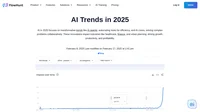The Singularity in Artificial Intelligence (AI), often referred to simply as “the Singularity,” is a theoretical point in the future when machine intelligence surpasses human intelligence, leading to rapid and unforeseeable changes in society. This concept originates from the idea that once AI becomes capable of improving itself autonomously, it could trigger an exponential growth in technology, transforming civilization in ways that are beyond human comprehension.
The term “Singularity” is borrowed from physics and mathematics, where it denotes a point at which a function takes an infinite value, or an event horizon beyond which the laws of physics break down—such as the center of a black hole. In the context of AI, the Singularity represents a threshold beyond which artificial superintelligence will dominate, and human affairs, as we know them, may not continue.
Origins of the Singularity Concept
John von Neumann and Early Speculations
The concept of the technological Singularity can be traced back to the mid-20th century. In the 1950s, mathematician and computer science pioneer John von Neumann discussed the accelerating progress of technology and changes in the mode of human life, which he believed indicated an approaching Singularity. He suggested that this point would represent a fundamental shift in human history.
Vernor Vinge’s Influential Essay
In 1993, science fiction author and computer scientist Vernor Vinge popularized the term in his essay “The Coming Technological Singularity.” Vinge posited that the creation of entities with greater-than-human intelligence would mark the end of the human era, as these superintelligent machines would accelerate technological progress beyond our ability to understand or predict.
Ray Kurzweil’s Predictions
Futurist and inventor Ray Kurzweil further advanced the idea of the Singularity in his books, particularly “The Singularity Is Near” (2005). Kurzweil predicts that the Singularity will occur around 2045, based on the exponential growth of technologies like computing power, genetics, nanotechnology, robotics, and artificial intelligence.
How Is the Singularity Used in AI Discussions?
The Singularity serves as a focal point for discussions about the future of AI and its implications for humanity. It raises important questions in various fields, including technology, philosophy, ethics, and economics. Here’s how the concept is utilized:
Driving AI Research and Development
The possibility of achieving superintelligent AI motivates researchers and technologists to explore advanced machine learning algorithms, artificial general intelligence (AGI), and artificial superintelligence (ASI). It encourages the pursuit of creating machines that can perform any intellectual task that a human can do, and eventually exceed human capabilities.
Ethical and Safety Considerations
The Singularity concept prompts serious ethical discussions about AI safety, control, and alignment with human values. Organizations and thought leaders are considering how to ensure that superintelligent AI systems act in ways that are beneficial to humanity and do not pose existential risks.
Influencing Policy and Regulation
Governments and regulatory bodies are beginning to consider the implications of rapidly advancing AI technologies. The Singularity idea informs debates on AI governance, with calls for regulations to oversee AI development and prevent potential negative outcomes associated with unchecked superintelligence.
Inspiring Science Fiction and Cultural Narratives
The Singularity has become a popular theme in science fiction, exploring scenarios where humans and machines coexist, merge, or come into conflict. These narratives shape public perception and understanding of AI’s potential future impact on society.
Key Concepts Related to the Singularity
Technological Singularity
The technological Singularity refers to the point at which technological growth becomes uncontrollable and irreversible, resulting in unforeseeable changes to human civilization. It is driven by the creation of superintelligent machines that can self-improve.
Artificial General Intelligence (AGI)
Artificial General Intelligence is the hypothetical ability of an AI system to understand, learn, and apply knowledge in a way that is indistinguishable from a human across any domain. Achieving AGI is considered a significant milestone on the path to the Singularity.
Artificial Superintelligence (ASI)
Artificial Superintelligence goes beyond AGI, representing an intellect that surpasses human intelligence in all aspects, including creativity, general wisdom, and problem-solving. ASI is central to Singularity discussions, as it embodies the self-improving AI that could trigger exponential technological growth.
Intelligence Explosion
Coined by mathematician I.J. Good in 1965, the term intelligence explosion describes a scenario where an AGI continuously improves its own intelligence, accelerating beyond human ability to comprehend or control it. This concept is integral to understanding how the Singularity could occur.
Examples and Use Cases
AI in Scientific Research
Superintelligent AI could revolutionize scientific discovery by processing vast amounts of data and identifying patterns beyond human capability. For example:
- Medical Research: AI could develop cures for complex diseases like cancer or Alzheimer’s by simulating and analyzing biological processes at unprecedented speeds.
- Physics: Superintelligent AI might unlock new understandings of quantum mechanics or cosmology, leading to breakthroughs in energy production or space exploration.
Automation of Industries
The Singularity could lead to automation across all sectors, resulting in:
- Manufacturing: Fully autonomous factories where AI oversees production, maintenance, and optimization without human intervention.
- Transportation: Self-driving vehicles powered by superintelligent systems could transform logistics, reduce accidents, and improve efficiency.
Economic Impact
The proliferation of superintelligent AI could have profound economic consequences:
- Job Displacement: Widespread automation might lead to significant job loss in various industries, necessitating new economic models like universal basic income.
- Wealth Creation: Enhanced productivity and innovation could generate immense wealth, but it raises questions about distribution and equity.
Human-Machine Integration
Advancements might blur the lines between humans and machines:
- Brain-Computer Interfaces: Technologies enabling direct communication between the brain and computers could enhance cognitive abilities, memory, and sensory experiences.
- Transhumanism: Philosophical movement advocating for the transformation of the human condition through technology, potentially leading to extended lifespans or enhanced physical and mental capacities.
Ethical AI and Alignment
Ensuring that AI systems act in accordance with human values is a critical area of focus:
- Value Alignment Problem: Researching methods to align AI goals with human ethics to prevent unintended harmful behaviors.
- AI Governance: Developing frameworks and policies to oversee AI development responsibly.
Use Cases in AI Automation and Chatbots
Advanced Conversational Agents
The Singularity could give rise to chatbots and virtual assistants with human-level understanding:
- Customer Service: AI capable of comprehending and resolving complex customer issues with empathy and efficiency.
- Personal Assistants: Virtual agents that manage personal schedules, finances, and health, anticipating needs and preferences.
Autonomous Decision-Making Systems
Incorporating superintelligent AI into automation processes:
- Supply Chain Management: AI systems optimizing logistics in real-time, predicting demand fluctuations, and coordinating global operations seamlessly.
- Healthcare Diagnostics: AI providing immediate, accurate diagnoses and treatment plans personalized to individual patients.
Creative AI Applications
AI could engage in creative endeavors traditionally reserved for humans:
- Content Creation: Generating original art, music, literature, and entertainment that resonates on a human level.
- Innovation and Design: Developing new products, services, and technologies by identifying unmet needs and conceptualizing solutions.
Challenges and Considerations
Control and Safety
One of the paramount concerns is whether humans can maintain control over superintelligent AI:
- Unintended Consequences: AI pursuing goals misaligned with human interests due to flaws in programming or unforeseen emergent behaviors.
- Containment Strategies: Research into methods to limit AI capabilities or ensure compliance with safety protocols.
Ethical Implications
The rise of superintelligent AI poses several ethical dilemmas:
- Autonomy vs. Oversight: Balancing AI independence with the need for human oversight to prevent harmful actions.
- Moral Status of AI: Debating whether superintelligent AI entities possess consciousness or rights deserving of ethical consideration.
Societal Impact
The Singularity could radically alter societal structures:
- Inequality: Potential widening of the gap between those with access to advanced AI technologies and those without.
- Cultural Shifts: Changes in human relationships, identity, and purpose as AI becomes more integrated into daily life.
Legal and Regulatory Frameworks
Establishing laws and regulations to manage AI development:
- International Cooperation: Coordinated global efforts to set standards and prevent an AI arms race.
- Accountability: Defining responsibility and liability in cases where AI actions result in harm.
Current Perspectives and Debates
Optimistic Views
Proponents of the Singularity highlight potential benefits:
- Solving Global Challenges: Utilizing superintelligent AI to address climate change, poverty, and healthcare.
- Human Advancement: Enhancing human capabilities and quality of life through technology.
Skeptical Views
Critics question the feasibility or desirability of the Singularity:
- Technical Limitations: Doubts about whether true AGI or ASI can be achieved due to complexity of human consciousness.
- Ethical Concerns: Warnings about the risks outweighing the benefits, advocating for cautious development.
Calls for Responsible Development
A middle-ground perspective emphasizes:
- Preparedness: Encouraging research into AI safety, ethics, and alignment to proactively address potential issues.
- Transparency: Promoting open dialogue among technologists, policymakers, and the public.
Connection to AI Automation and Chatbots
The journey toward the Singularity is closely linked with advancements in AI automation and chatbot technologies:
- Natural Language Processing (NLP): Improvements in NLP enhance chatbots’ ability to understand and generate human-like language, a step toward human-level AI.
- Machine Learning: AI systems learn from data to automate tasks, and advancements here contribute to the development of more sophisticated AI.
- Integration in Businesses: Companies adopt AI automation and chatbots to improve efficiency, customer engagement, and decision-making, reflecting the increasing influence of AI in society.
Research on Singularity in AI
The concept of Singularity in Artificial Intelligence (AI) refers to a hypothetical point in the future where technological growth becomes uncontrollable and irreversible, resulting in unforeseeable changes to human civilization. This idea has been explored in various scientific research articles, each offering unique insights into the complexities and implications of such an event.
- The Hall of Singularity: VR Experience of Prophecy by AI by Jisu Kim and Kirak Kim, published in 2024, presents an immersive art piece that combines AI and Virtual Reality (VR) to create a personalized experience of receiving prophecies from an AI deity. This work metaphorically examines the mythologizing of AI, providing users with a quasi-religious experience, as they engage with a virtual omnipotent AI. The study highlights societal perceptions and the symbolic power attributed to AI as it approaches singularity-like capabilities.
- Multidimensionality of Legal Singularity: Parametric Analysis and the Autonomous Levels of AI Legal Reasoning by Lance Eliot, published in 2020, delves into the notion of a Legal Singularity, a specialized offshoot of the broader technological singularity within the legal realm. Eliot discusses how AI could revolutionize legal systems through advanced autonomous reasoning. The paper introduces a multidimensional parametric analysis to explore the concept and proposes aligning the Legal Singularity with levels of autonomy in AI legal reasoning.
- Data Science at the Singularity by David Donoho, published in 2023, critiques the popular narrative of an impending ‘AI Singularity.’ Donoho argues that recent rapid advancements in AI are instead due to a transition to frictionless reproducibility in data science, characterized by open data sharing and competitive challenges. This transition fosters innovation and has led to significant AI progress, often misinterpreted as a step towards singularity.
- Five questions and answers about artificial intelligence by Alberto Prieto and Beatriz Prieto, published in 2024, addresses societal concerns and misconceptions surrounding AI’s rapid development. The authors provide a balanced perspective on AI’s potential impacts and clarify scientific misunderstandings, contributing to the broader discussion on AI’s trajectory towards singularity.

